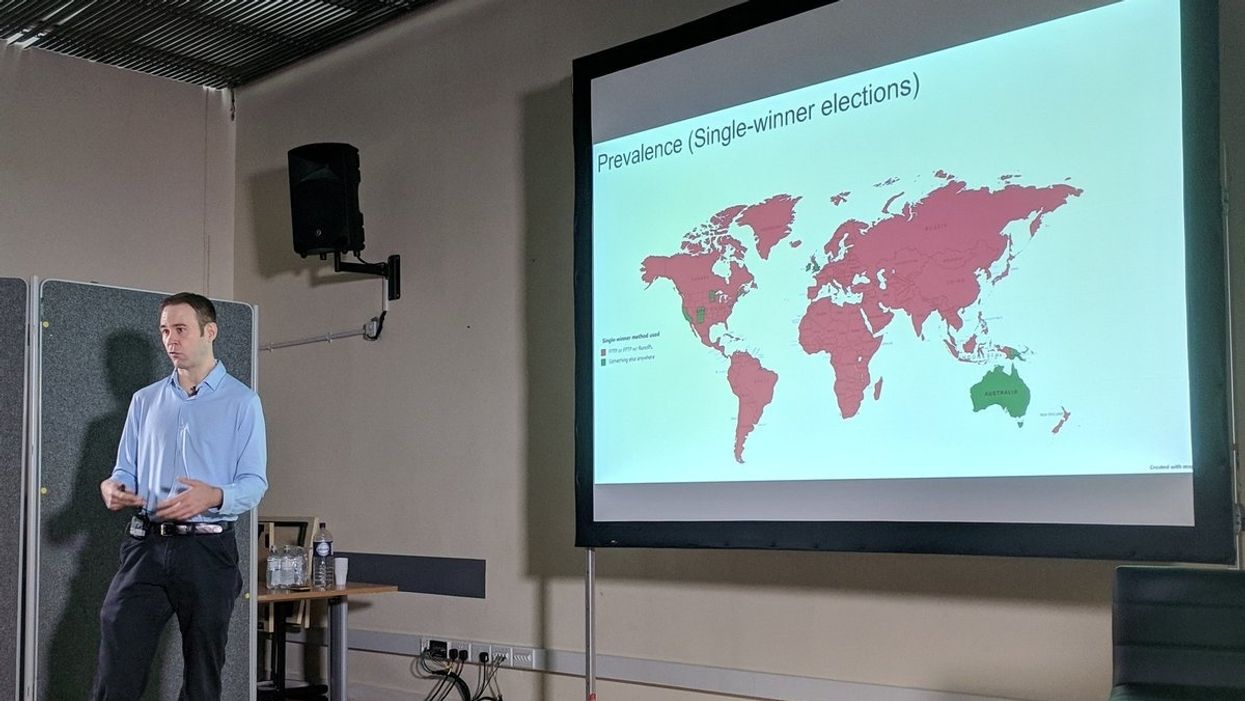What's the tweet-length description of your organization?
We study and advance better voting methods. We have a focus on approval voting, which empowers voters to choose as many candidates as they want — most votes wins. This addresses vote splitting, always lets you support your honest favorite, and tends towards a more consensus winner.
What's democracy's biggest challenge, in 10 words or less?
We use the world's worst voting method. It's really bad.
Describe your very first civic engagement.
I helped pass out fliers for a local candidate while I was in grad school. It was freezing cold and drizzly, but I powered on!
What was your biggest professional triumph?
After we got our initial funding at the end of 2017, I was able to hire strong staff so that our team — collaborating with our partners in Fargo, N.D. — helped bring approval voting to its first U.S. city. And that all happened in under a year.
And your most disappointing setback?
Taking so long for initial funding. Those were precious missed years that could have gone towards empowering voters with better elections.
How does some aspect of your identity influence the way you go about your work?
I try to merge sound reasoning and good ethics. For instance, my background is in the social sciences, so I apply that to the way we hire, going as far as blinding ourselves to candidates' names. Our organization is very outcome-oriented so we focus only on pertinent metrics instead of trivialities like in-your-seat time. I also go out of my way to deliver on employee benefits. It makes organizational sense as it allows employees to focus on their work and stay with us longer. But it's also just the right thing to do.
What's the best advice you've ever been given?
Be sure to sleep and exercise.
Create a new flavor for Ben & Jerry's.
Vegan Rocky Road. Chocolate with almonds and chocolate chips made from Ripple-brand pea milk.
West Wing or Veep?
I'd rather watch the last season of The Good Place.
What's the last thing you do on your phone at night?
Probably reading a dorky article I just found.
What is your deepest, darkest secret?
One of my hobbies is lock-picking. I taught myself in college and now attend meetings of the lock-picking group TOOOL.




















Trump & Hegseth gave Mark Kelly a huge 2028 gift